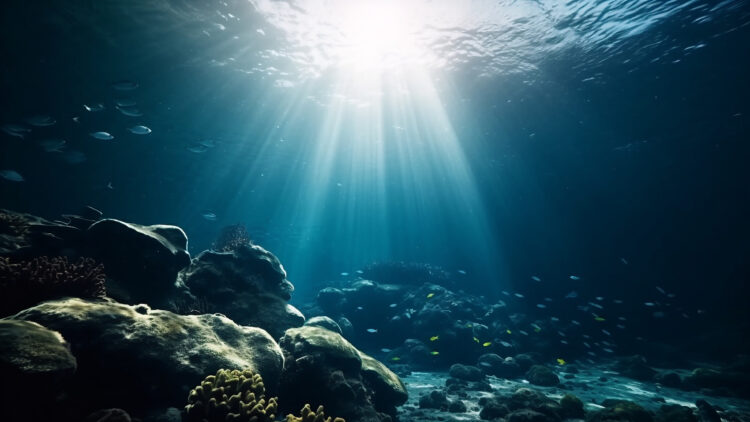Originating in the 19th century, the idea of harnessing underwater thermal currents—whether warm or cold, depending on their depths—for energy production has intrigued scientists and innovators alike for generations. Recent advancements in Ocean Thermal Energy Conversion (OTEC) technology have turned this long-held myth into a tangible reality. Today, OTEC-based projects in various regions of the world are laying the groundwork for leveraging the ocean’s temperature differences to create viable energy.
Global OTEC: A new era of energy generation taking the world by storm
OTEC is a groundbreaking process that leverages the temperature differences between warmer surface ocean water and colder water found beneath the depths of the water’s surface. This thermal gradient offers a substantial opportunity for energy production.
OTEC is notable for its environmental benefits over traditional fossil fuels and nuclear power, requiring considerably less land and resulting in a smaller ecological footprint. With tropical regions estimated to have a resource potential exceeding seven terawatts, the scalability of OTEC technology presents a promising avenue to addressing the global energy crisis.
As such, Global OTEC, an England-based pioneer in ocean thermal technology, aspires to establish OTEC as a mainstream renewable energy source. Their innovative floating commercial OTEC systems seek to provide clean and affordable energy, especially for small island developing states (SIDS).
The company’s initiatives highlight the necessity for continuous, baseload power generation, capable of functioning year-round, irrespective of climatic conditions.
The rise of OTEC in Mauritius
Mitsui O.S.K. Lines, Ltd. (MOL) has taken big strides towards the commercialization of OTEC through a feasibility study commissioned by Japan’s Ministry of Economy, Trade and Industry.
This project, which focuses on the potential for OTEC in Mauritius, builds on a comprehensive study that began in May 2022. The study’s goal was to assess the viability of deep ocean water applications for energy production, identifying suitable sites for OTEC facilities.
As touched upon earlier, OTEC technology operates by exploiting the temperature between warm surface water and cold deep seawater, usually at depths greater than 1,900 feet. This process allows for reliable, stable energy generation, regardless of weather conditions.
Mauritius, strategically located in the tropical Indian Ocean, aims to reach a renewable energy share of 60% by 2030, making it an ideal candidate for OTEC implementation.
European advances in making OTEC storm-resistant
Meanwhile, in Europe, the PLOTEC project is advancing towards the installation of a storm-resistant OTEC prototype at Hidramar Shipyard in Gran Canaria, Spain. Backed by the European Union, this endeavor aspires to boost the resilience and efficacy of OTEC structures, especially in SIDS that are often at risk from severe weather.
The hull of the prototype is almost finished, and essential pre-installation work is underway to ensure a seamless deployment approximately 1.9 miles off the coast. PLOTEC aims to gather data on the prototype’s performance in real-world conditions, providing crucial insights to refine OTEC technology for storm-prone regions.
The consortium behind this project includes notable organizations from the United Kingdom, Spain, Portugal, Austria, and Italy, all collaborating to push the boundaries of renewable energy.
These recent advancements in OTEC technology reaffirm the potential of using the ocean’s natural temperature gradients for sustainable energy production. As these projects in Europe—as well as Mauritius—demonstrate, the dream of generating water from underwater thermal currents is no longer a concept but a concrete reality.
As we progress, the commitment to harnessing ocean energy could play a major role in influencing the global transition to renewable resources. By leveraging the vast potential of the seas, we can meet energy demands worldwide. Additionally, we’ll be able to foster a cleaner, green future for all.

